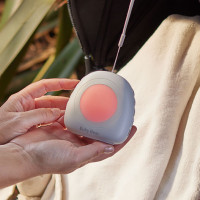Having three young boys, two of whom are in primary school, I understand the importance of setting your kids up for productive study time.
This includes not only preparing them for learning through a balanced lifestyle but also creating a well-structured study space.
Create healthy habits for your children from a young age to set them up for success in study that will last well into their schooling and adult life. This means placing an importance on sleep, healthy eating and physical activity:
– Sleep
Sleep is especially important for children as it is during their dozing hours that growth hormones get a boost – hence their need for more shut eye than you and me. My recommendation is 10-11 hours of sleep per night for children aged 6 to 12 years of age. For teenagers, 13 to 18 years of age, 8.5-10 hours of sleep will ensure they’re able to function optimally.
Enough sleep will help decrease mood swings and irritability, improve problem solving and decision making ability, increase concentration, motivation and creative thinking, result in a higher tolerance to stress and increased immune system. Share the benefits of sleep with your kids to reinforce the importance of rest time.
- Nutrition
A healthy diet of limited processed, sugary and fatty foods and an abundance of wholesome meals and fresh fruits and vegetables will greatly benefits your child’s learning capacity. Many research studies have shown that the effects of sugar in a child’s diet, even small amounts, can make a child hyperactive, feel tired, worn out and irritable as well as decrease concentration levels.
- Physical activity
Being active is all part of being a kid. At the start of recess and lunch breaks at school, kids are raring to get out of the classroom and blow off some steam. The benefits of exercise, for the young and old alike, include improved emotional wellbeing, mental health, concentration, ability to manage anxiety and stress, social skills, learning and productivity and decreased anti-social behaviour.
For children aged between 5 and 18 years of age, 60 minutes of moderate to vigorous intensity aerobic physical activity every day is ideal. This might be running around during breaks at school, riding a bike to and from school, sport outside of school and on weekends or fun in the playground rather than sitting at home in front of the television.
Study space ergonomics 101
With these three factors covered off, your child or teen will be well prepared to learn. You can further assist by optimally structuring their study space at home. My recommendations to set up an ideal computer based study station are as follows:
- Desk – if possible, consider investing in an adjustable study desk rather than being tempted to plonk your kids down one end of the dinner table. The desk is really the foundation of the study space.
- Chair – choose a chair that can have the seat height adjusted. Alter the height of the chair so that the seat is at the level of the rear of your child’s knee when their feet are flat on the floor.
- Feet – both feet should either be flat on the floor or resting on a foot rest.
- Arms – position your child’s arms to rest on the desk at a 45 degree angle and ensure that the elbows are not positioned too far away from the body.
- Posture – no slouching allowed! The position of the desk, chair and computer/study materials should allow for an upright, perhaps very slight reclined position and not twisted or rotated in anyway.
Research has shown that sitting in a sedentary position for periods of time without movement, even as little as 30 minutes, can be detrimental to our health. While this may most often be associated with adult office workers, our kids are in the same situation at school and at home when they study – especially those in senior years of high school and at university. Encourage your children to move around after 30 minutes of sitting or completing a task to improve their concentration. You might also like to recommend some stretching, especially of the neck and back. If in doubt on how to best establish the right study environment for your child, then contact a Back In Motion physiotherapist to guide you through the process.
We may get commissions for purchases made using links in this post. Learn more.




















11:03 am
10:40 pm
1:06 pm
12:35 pm
11:01 am
9:20 pm
10:49 am
2:51 pm
2:08 pm
7:45 pm
10:15 am
9:48 am
7:48 pm
3:06 pm
8:43 pm
- 1
- 2
- 3
- »
Post a comment